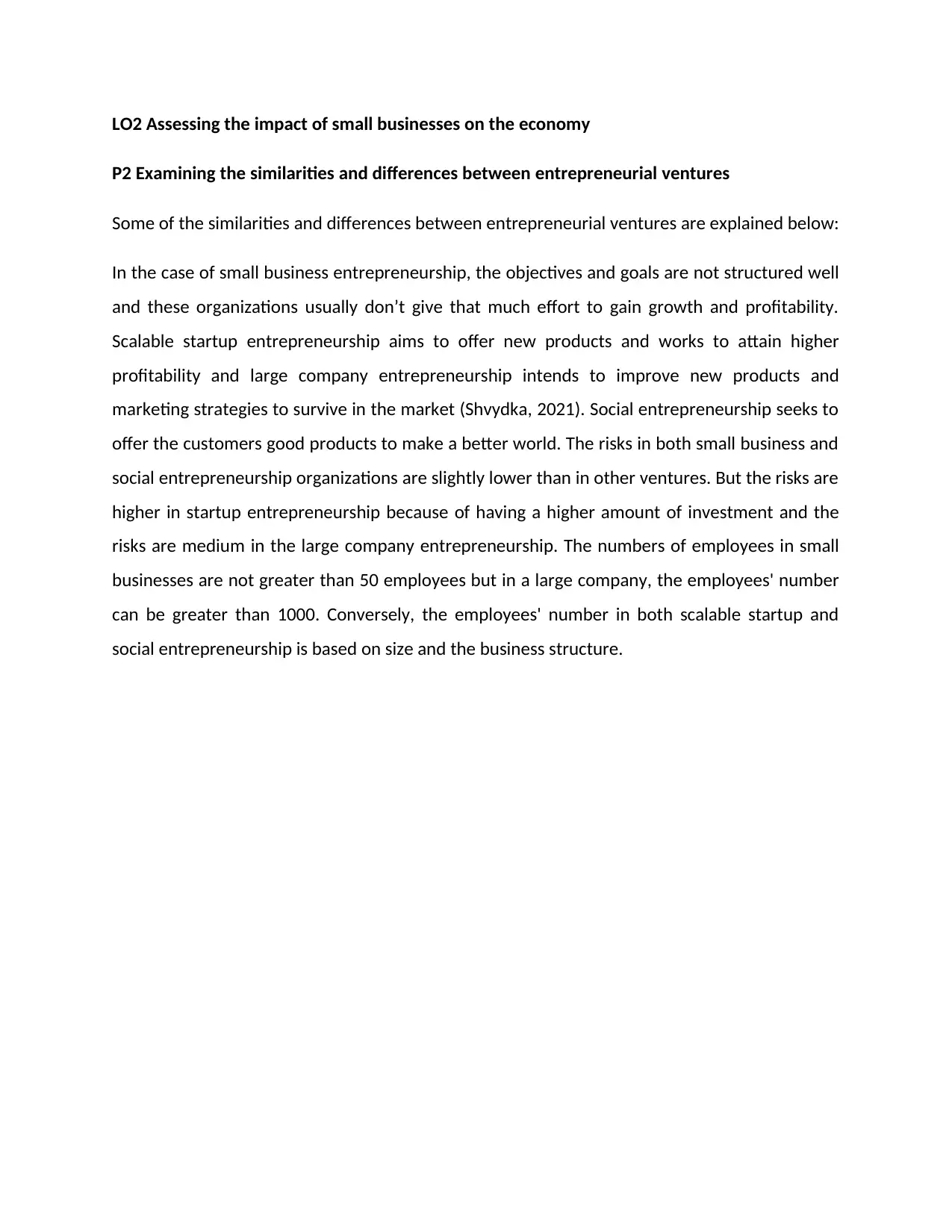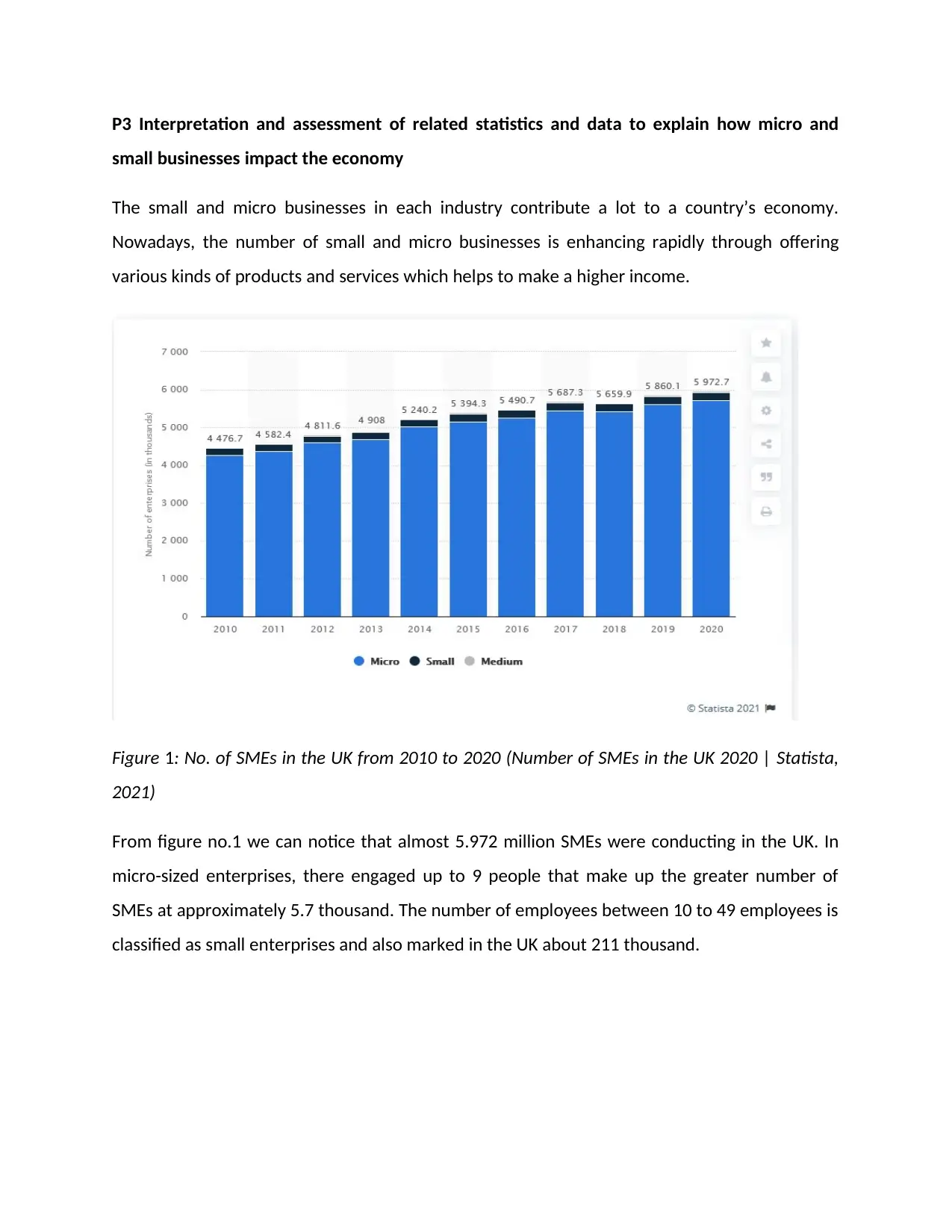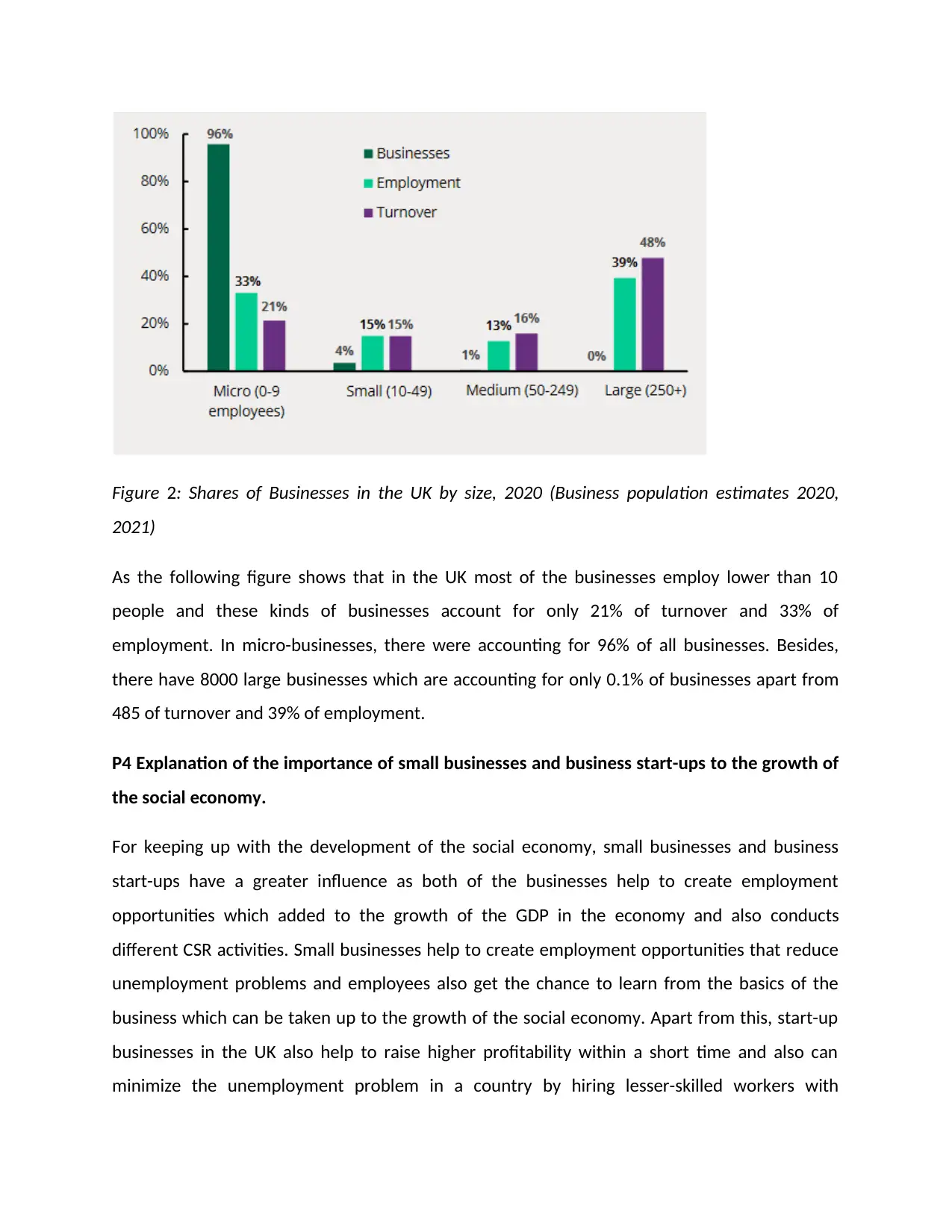Small Businesses: Economic Impact & Entrepreneurial Ventures UK
VerifiedAdded on 2023/06/30
|4
|634
|59
Report
AI Summary
This report examines the impact of small businesses on the economy, focusing on the similarities and differences between various entrepreneurial ventures, including small business entrepreneurship, scalable startup entrepreneurship, large company entrepreneurship, and social entrepreneurship. It interprets and assesses related statistics and data to explain how micro and small businesses influence the economy, using UK SME data from 2010 to 2020. The report also highlights the importance of small businesses and business start-ups in the growth of the social economy, emphasizing their role in creating employment opportunities, contributing to GDP, and engaging in CSR activities, particularly in the UK context.
1 out of 4







![[object Object]](/_next/static/media/star-bottom.7253800d.svg)